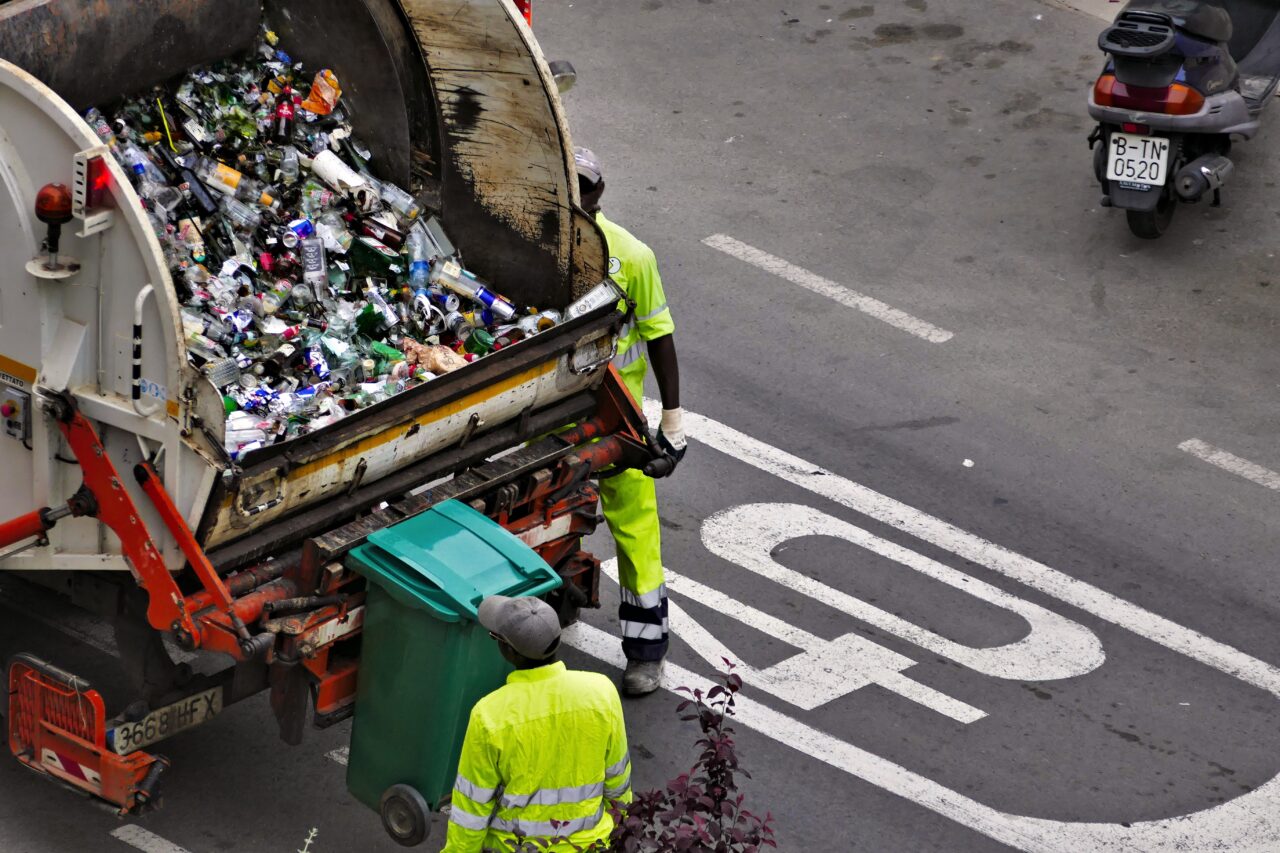Regulatory environment around waste management in Kampala City
The presidency made a directive in May 2023 through an executive order that requires all urban authorities to ensure that there is a garbage skip every 200 meters. The order is expected to be enforced in six months. However, feedback from various municipal and city authorities mentioned it would be difficult to enforce the directive due to lack of funds.
Despite the goodwill from the government to streamline the waste management value chain in Kampala City; several challenges still abound as elucidated below:
- Insufficient public infrastructure to manage the waste
Kampala city produces more waste than its current infrastructure can handle. The main dump site Kiteezi landfill ran out of capacity in 2009 but continues to receive more waste every day. The landfill has been stretched to capacity despite only receiving 40-50% of generated waste. This shows that there is a significant need for more capacity in order to achieve the KCCA strategic goal of handling 85% of generated waste by 2025.
- Lack of awareness among the people on waste management
A study done by Makerere University and KCCA identified a lack of awareness among the population especially those living in the slum areas on proper waste management. The respondents in the study reported that they lacked the awareness on how to segregate their waste and what benefits it would have on them.
Bukedde TV was mentioned as one of the sources for information on what to do with solid waste. Some of the segregation being done is so as to produce briquettes.
- Insufficient private infrastructure to manage the waste
The same study pointed out that the private companies contracted by KCCA to handle the waste collection do not provide the necessary equipment in order to help households in separating the waste at source. Secondly, when they are collecting the waste, the waste handlers pile the segregated and un-segregated waste together meaning that a second phase of segregation will need to be done at the landfill. Respondents in the study also complained of poor service from the waste collecting companies who can fail to come even for up to a month despite the customer paying for the waste collection service. Additionally, the refuse skips and collection points at times are located far away from the residents. This makes it inefficient for them to dump their waste in the correct way and they end up resorting to near by dump sites that majority of the time are not official. The study recommended that the private players in the waste collection space should redistribute their waste handling infrastructure depending on where majority of the population is.
- No incentive for the public to manage their waste better
Recycling is happening within Uganda but for products that are deemed to have a high return. For example, peelings, plastic waste and polythene bags are the most recycled because households claim a higher return is earned when this waste is segregated and sold to plastic recycling companies and farmers who use the peelings as feed for their animals. The main driver behind the incentive is the price at which the recycling companies interested in the waste are willing to pay for the recycled products. For the farmers interested in the peelings they pay UGX 500 or USD 0.137 per 200 liters sack that is filled. On the other hand, plastic waste fetches UGX 100 or USD 0.027 per kilogram.
- Lack of policy and regulations guiding the solid waste recycling space
Kampala City lacks regulations and policies that help in determining the market price for segregated waste when being collected from citizens by recycling companies. This exposes the citizens to low prices being offered by the recycling companies and hence erodes the incentive for them to segregate the waste at source. The same study done by Makerere and KCCA identified this challenge and recommended that KCCA should come up with policies that bring linkages between the segregators and waste buyers to provide benefits for both. Additionally, these policies will enforce recycling companies to provide the necessary infrastructure to make it easier for citizens to sort the waste.
- Cost paid for waste collection
Houses in the middle-low and low-income segment complained about the cost that they have to part with in order for their waste to be collected. In some areas waste collection costs UGX 30,000 or USD 8.21 per month for a premium service that entitles the household to 3 bags per week. In the low-income segment under a bring-to-truck service it costs between UGX 3,000 – 5,000 or USD 0.821 – 1.367 per month. Despite paying these fees at times these collection trucks can fail to come and collect waste even for up to a month.
Author: David Kageenu
Manager – Fie-Consult LLP


